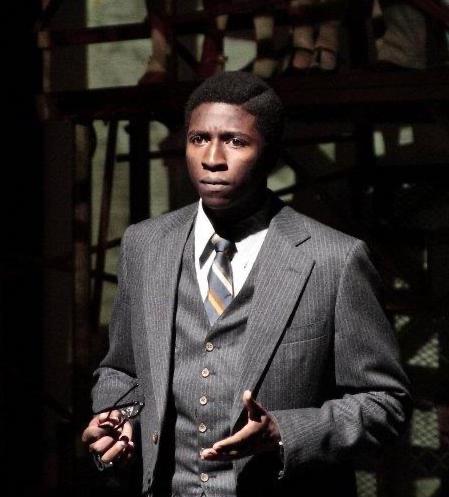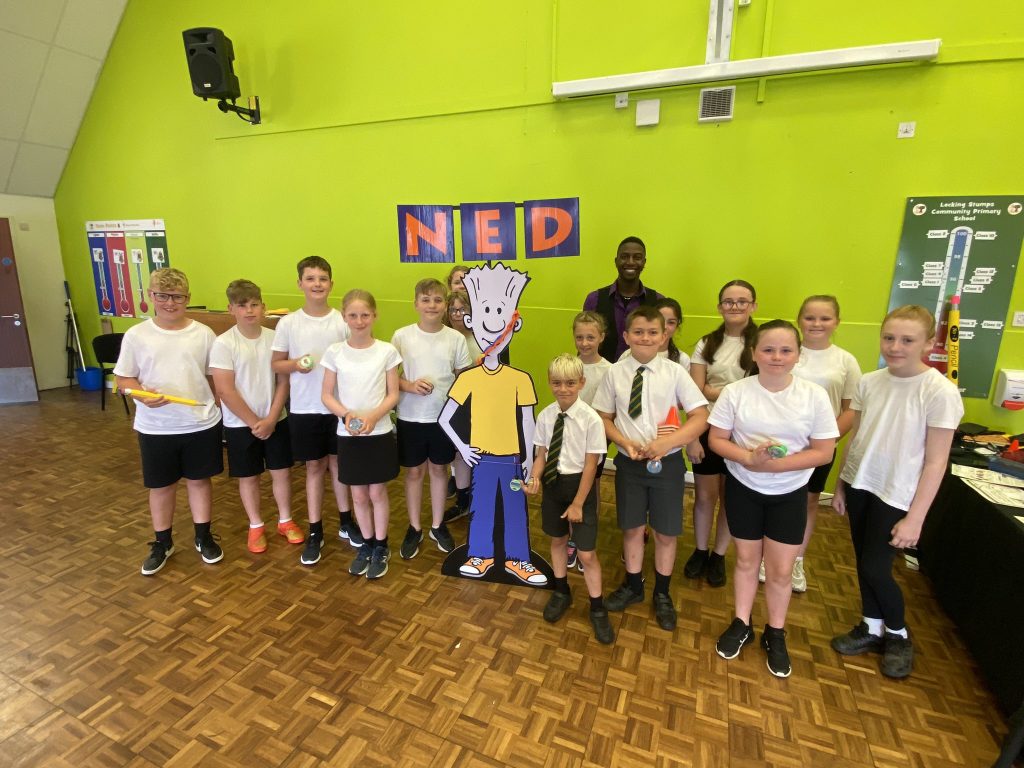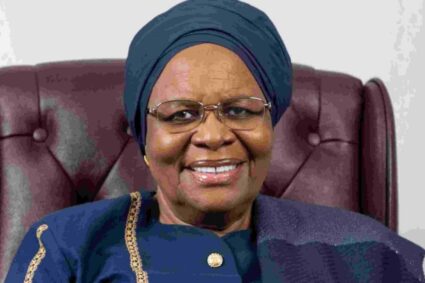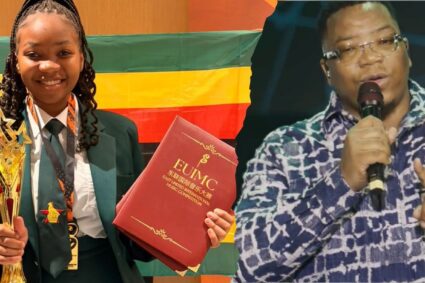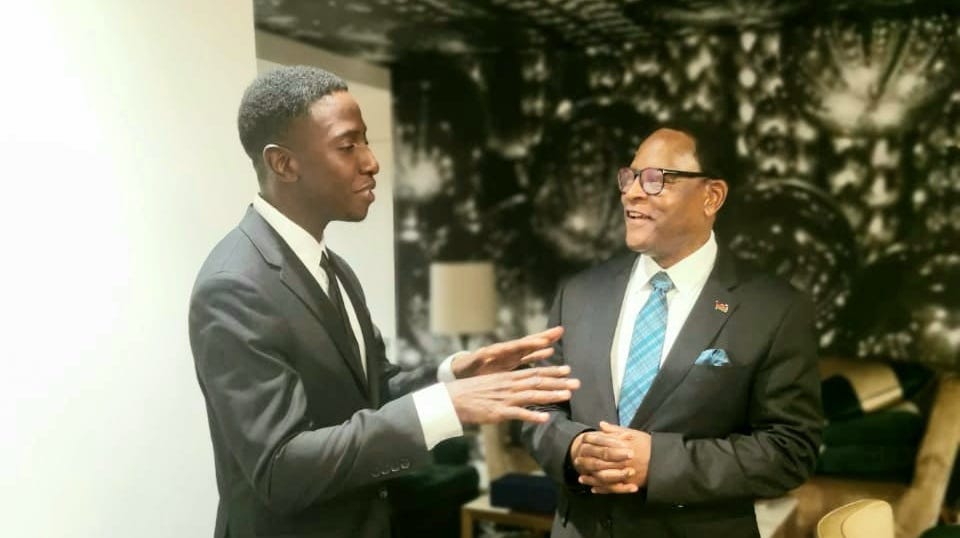
The film ‘Alfred‘ was part of the screen selection in the European Union Film Festival’s showcase which starred the Malawi-American based actor, Abraham Anene Ntonya.
In an exclusive interview with My Africa Magazine reporter, Tapiwanashe Rubaya (TR), Abraham Anene Ntonya (AA) reviews his one-on-one meeting with the President Chakwera who also informed him about his interests in the films, and Alfred being one of his favorite.
TR: Hie Abraham Anene Ntonya can you greet pour readers?
AA: Greetings to you. Thank you for reaching out to interview me. My full name is Abraham Anene Ntonya.
I am an actor from Malawi based in Los Angeles, California. This year marks 15 years since leaving the Warm Heart of Africa. In that time, I’ve acquired a BA in Theater and Communications Minor from Arizona State University (ASU), Music Business Associates from Mesa Community College (MCC), and an MFA in Theater with an Acting Concentration from the University of Houston (UH).
I’ve acted in several Shakespeare Festivals around the United States, appeared in a few films, both short and feature length, and now I’m currently a performer and host for two children’s shows.
The first one is called “The Original NED Show.” This show introduces kids to NED, a young kid who learns the meaning of his name which is to Never give up, Encourage others and Do your best! The second show is called “NED’s Kindness Adventure.” This one talks about the importance of Kindness, Cultural diversity, and Acceptance.
This show is very dear to me because I get to share about my trip to Kenya and introduce kids to a lifestyle that they would otherwise not know to think about.
TR: Take us through your first steps in the industry of arts?
AA: The first step was unveiling the Passion. I started off doing a lot of theater in primary school.
I was a student at Bishop Mackenzie School in Lilongwe. It was during my time at BMS where I really began to explore the possibilities of becoming a professional actor.
If there was a school play, you could bet your house I was going to be a part of it. I’m extremely fortunate I had parents who were patient with me as my theatrics got me into trouble at times, but I knew from an early age I wanted to be an actor and move to America.
Once I arrived in the USA, I quickly made friends with members of the film program at ASU. That was the next important step – connecting with those who were passionate about making films. In fact, the movie “Alfred” is a result of such a connection.
I’ll elaborate on that later.
Next step was getting enough material to put an acting reel together. This meant I accepted projects I knew would offer enough screen time to create a reel I can use as a calling card. It demonstrates that I work, and it’s a great way for potential partners to view what I can offer to help them with a project they are casting.
Before I go on, I must say there isn’t one way to accomplish some of the things I have been able to. When I think of steps, it’s usually something that happens in sequence. My journey so far is nothing like that. I might have skipped a few steps, gone off road even. I’ve been lucky that despite all that, I have generally been moving in a forward direction, and so far, things are working out.
TR: Theater and cinematography, what do they mean to you?
AA: A gift. Something that comes to life the moment one person is willing to sit, watch and listen.
Theater was around long before the word existed. Our ancestors told stories around fires under starry night skies. They painted pictures on rocks and walls in caves. All of this was an attempt to communicate profound endeavors in their lives.
The theater and cinematography we recognize today is purely an evolution of the art of storytelling. It is a tool, much like the ones used to ingrain hieroglyphs in stone, and those of us who are present today to make theater, to make films, are fortunate we have this gift.
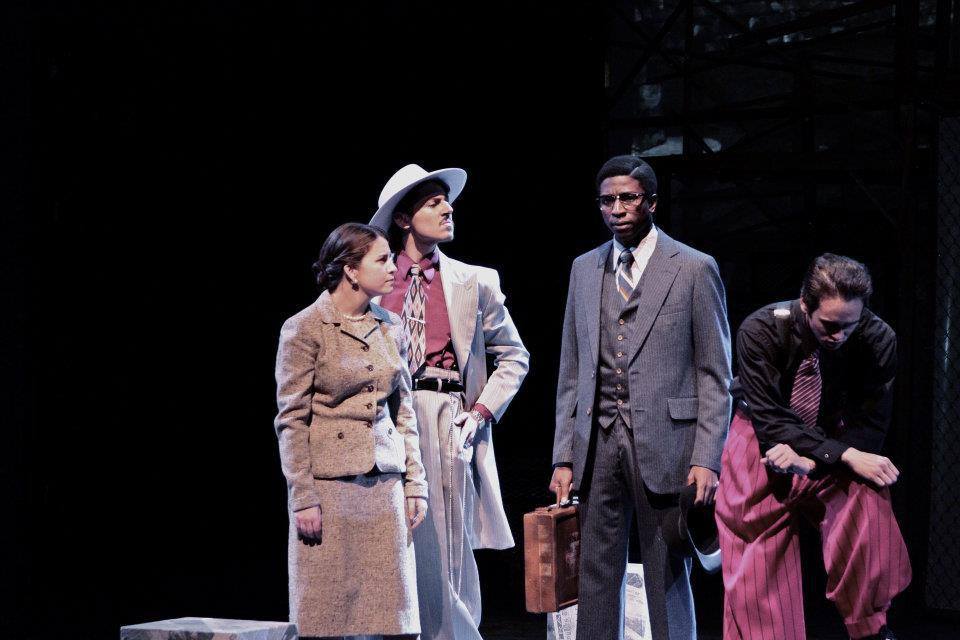
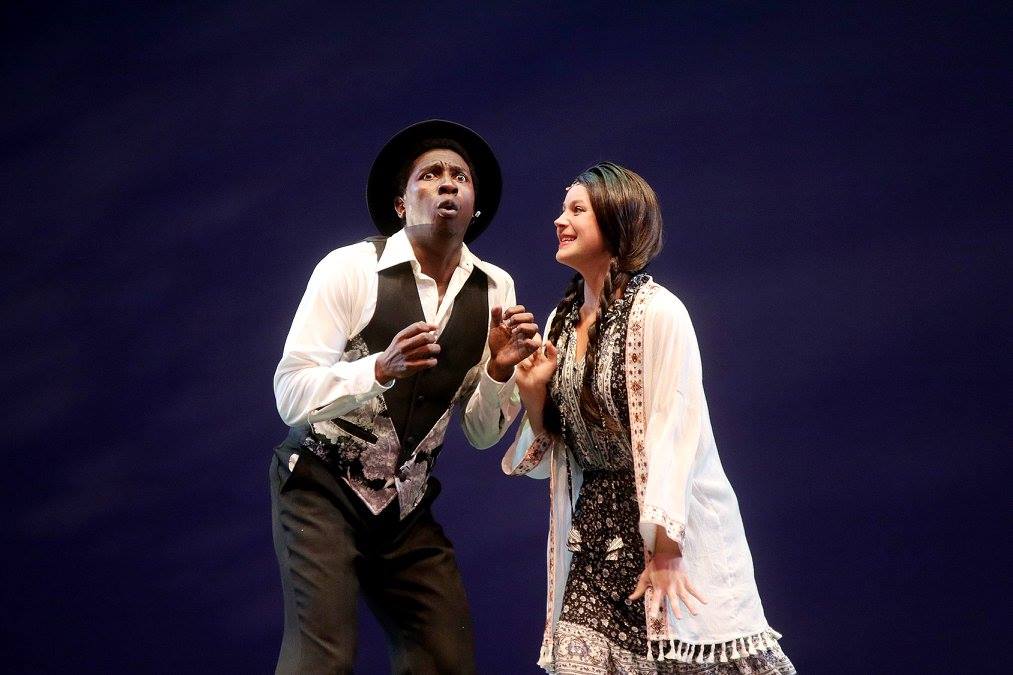
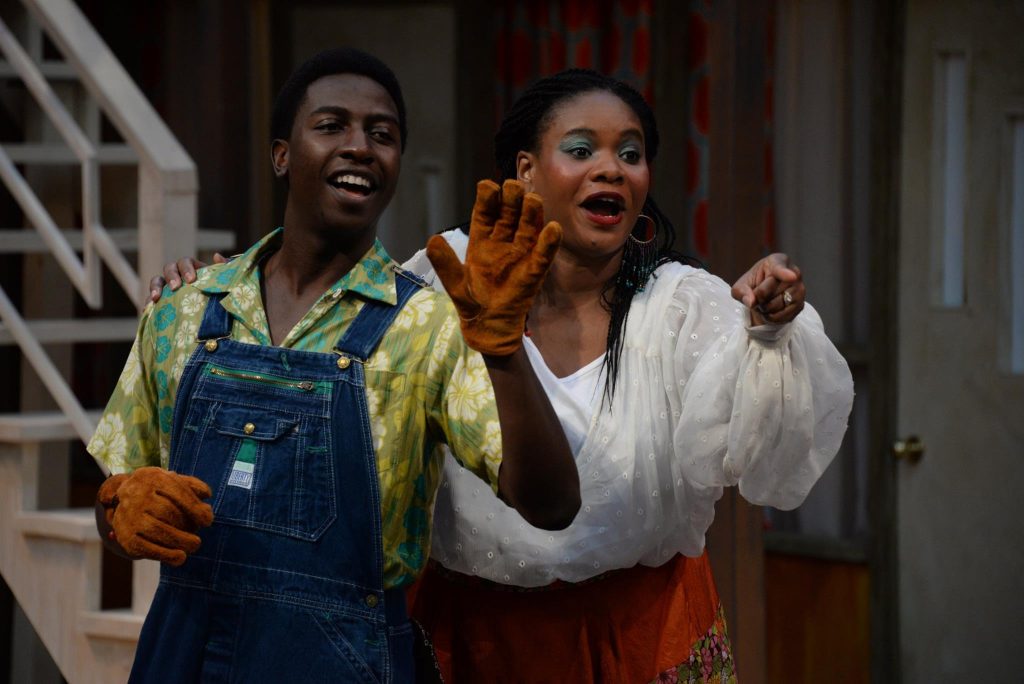
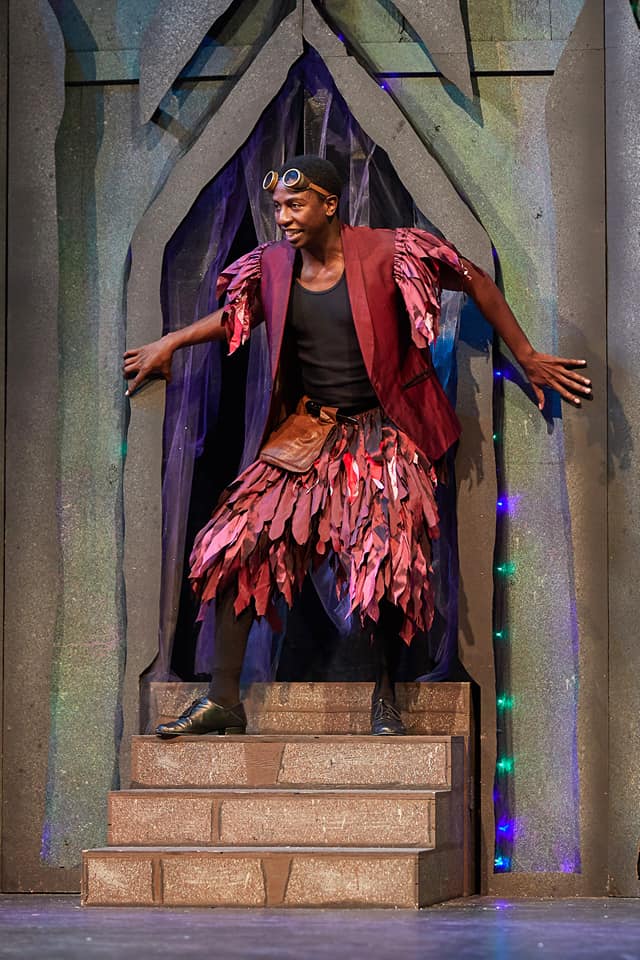
TR: Recently during the EU Malawi film festival one of your projects “Alfred” was showcased. What did it mean to you?
AA: It truly was a great honour to have perhaps my favourite film yet showcased to my family, friends, and fellow countrymen and women who were able to make it. A lot of the times these events happen in places lots of people cannot access, so I’m extremely thankful to the festival for coming back to Malawi and setting up an opportunity to expose some of the great work that is being done by Malawian actors and film makers.
TR: What was the inspiration behind the film?
AA: I must give a huge shout out to the writer, director, and pretty much the brains behind this film: Evan Sorosky.
Evan and I met in college while working on another film he wrote titled “Human Terrain.”
It’s a short film highlighting the struggles of a former marine as he attempts to reengage with civilian life. It was my first time playing a lead in a film, and Evan and I bonded instantly.
One day after the success of that film, he told me “I’m going to write a film with you in mind, and you are going to play the lead. We are going to work together like Leonardo DiCaprio and Martin Scorsese until you win an Oscar.”
Thus, Alfred was born.
It’s a reimagined story of the origins of the camera. I don’t want to give too much away in case there are some who want to watch it. What I will say about the film is it opens a great conversation about our complex history.
Those who win get to write it, and in many cases, credit isn’t given where it is due.
America has a complicated history to say the least, and there are lots of black people, and many others from different ethnic groups, who’s vital contributions to our journey on Earth has fallen through the cracks simply because they were not seen as human.
“Alfred” seeks to put a lens on such topics and bring them to focus.
Mr. Sorosky trusted my input and allowed me to rewrite my two main monologues in the film. It was the first time I was able to contribute to writing for a film.
It was my first time having someone create a film with me in mind. “Alfred” gave me experiences of what life is like working on a professional set and we made this film whilst in college more than a decade ago!! Call me biased, but I still think it holds value even today.
To Lee Margaret Hanson who played Margaret in the movie, thank you for being a dream scene partner. To Greg Joseph (Seth Boyden), Michael Harrison (Officer Putnam) and Chris Meyers (Edwin) thank you for being a part of an unforgettable experience. To the crew!!! You are really the true MVPs and I will never forget your passion, commitment and contribution to the world you helped create for me to play in.
TR: Before the film was showcased, you had the opportunity to meet the country’s Head of State, President Chakwera in New York and had a conversation about the Film ‘Alfred’. What did it mean to you that he was interested to hear about your project?
AA: What a moment that was.
It’s not every day a regular civilian gets to spend a private moment with a President.
As fate would have it, it was my turn. I was invited to be the Master of Ceremonies for a conference taking place in New York on the sidelines of the 78th United Nations General Assembly.
It was for the first ever Malawi Partners Conference. A member from HE’s cabinet…. (oh yeah, I’m cool now. I got to use inner-circle lingo like HE which stands for His Excellency) reached out to me and made an offer I really couldn’t refuse.
It’s no secret Malawi is currently experiencing excruciating suffering.
It’s such a shame too that it’s all happening under his watch. I strongly believe he is a good man who is unfortunately under extraordinary circumstances. So, when the call came to offer a new voice to appeal to our global partners to look at Malawi with renewed vigor, as a citizen, it is my duty to do so.
It was after this conference I was able to have a private talk with HE and share more about what I’ve been doing to wave the Malawi flag high and proud so far from home.
He thanked me for the work I did that evening, told me how proud he was of my achievements and that it’s great to know there are Malawians in the diaspora still representing the nation.
He also mentioned he will take a look at my movie in his spare time, but I’m sure he has his hands full for right now.
TR: You are currently based in America. Are you proud of the achievements that you have made since you relocated to America?
AA: I’d be lying if I didn’t say there were moments when I thought I had made a terrible mistake. There were moments when I thought I should have gone to Kenya instead and pursued hotel management and forget about acting.
Lucky for me, those moments were swiftly replaced with memories of times when I walked on stage to a full house, bared my heart to those who came to listen, and then have just one person come to me after to say I changed their lives even if for a night.
I cannot think of a better feeling, and I’m sure my fellow artists reading this know that moment I’m talking about. Could I have done this in another country? Who knows.
All I know is for fifteen years that feeling has kept me going. I stayed faithful to it regardless of if I was making money or not, and in the end, it’s allowed me to be a resident in a country with one of the toughest immigrations laws pursuing a career with a foundation made of sand and somehow this Malawian boy did it.
I’m only getting started…
TR: Speaking about relocation, which country in Africa would you like to visit and why?
AA: I would love to go to Ghana someday.
My best friend is from there, and to get a better sense of his origins, visiting his home country would be great.
There are other countries too. Nigeria is another one. Not only do they have Nollywood, some of my favourite Afrobeat artists are from there too.
Egypt to see the great pyramids, Morocco to meet the men’s national football team and congratulate them for doing so well in the world cup. Rwanda to witness firsthand how that country has transformed after a difficult period in a not-so-distant history. I could go on…
TR: One might wonder, Hollywood is turning into telling African stories e.g.: Black Panther. What do you think is the motivation?
AA: We have great stories to tell. With a Hollywood budget behind it, possibilities are endless. Our music is already influencing millions across the globe, and so can our movies.
TR: Lastly what words of advice do you have for Africans who are planning to tell their stories in America through Cinema?
AA: Write it down!!!
You don’t have to wait for someone else to present an idea to you.
Those moments happen occasionally and are often too far apart to depend on for consistency.
Know your audience as best as you can. It will help focus on the significant parts of your story that must be told.
Know yourself as best as you can.
People connect to truth and honesty much more than you think.
Don’t be afraid to ask for help. Even if help doesn’t come right away, it’s allowed you to be more articulate with what you need and perhaps even do for yourself.
